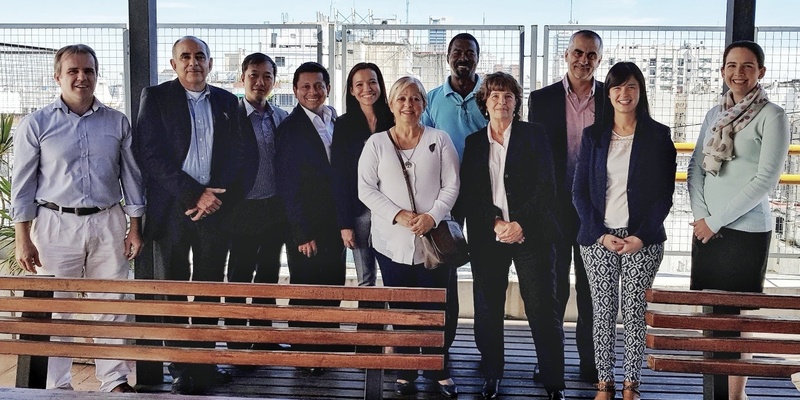IPPC Engagement with Environmental Aspects for Fulfilment of its Mission and Mandates
Posted on Mar, 06 Jun 2017, 14:06

Photograph: IPPC 2017: Plant health and environmental protection experts convene in Buenos Aires, the Argentine Republic
Hosted by the National Plant Protection Organization (NPPO) of the Argentine Republic, an IPPC discussion group convened on 2 - May 5 2017, in Buenos Aires, the Argentine Republic to discuss how the IPPC can assist contracting parties to access funding to implement environmental aspects of the Convention. The meeting, chaired by Leanne Stewart (the IRSS consultant of the IPPC Secretariat) and attended by Orlando Sosa, the Lead of the Implementation and Facilitation Unit, met with the plant health and environmental protection experts to analyze and discuss environmental aspects of the IPPC.
The group reviewed the Convention, international standards for phytosanitary measures (ISPMs), and recommendations made by the Commission on Phytosanitary Measures, to identify and discuss environmental aspects falling under the IPPC framework. Attention was paid to the IPPC Strategic Framework s (2012 - 2019) Strategic Objective B: protect the environment, forests and biodiversity from plant pests. The group reviewed the sub-elements of this strategic objective, including forestry, climate change, biodiversity (and invasive alien species) and the appropriate use of chemicals for phytosanitary measures and pest management. In light of the IPPC s partnership with the Convention on Biological Diversity (CBD), the group discussed ways to identify synergies between the IPPC and CBD and how stronger linkages between NPPOs and their national environmental counterparts could be enhanced to work towards joint goals.
Experiences of the Ministry of the Environment and Sustainable Development of the Argentine Republic were shared with specific focus on projects conducted under various Global Environment Facility (GEF) focal areas, including climate change, land degradation and biodiversity. Strong national communication networks between Argentinian agencies, in particular between agriculture and environmental agencies has in part resulted in a relative success the Argentine Republic has had in developing and implementing GEF projects. Details on the nature and conditions of GEF projects were presented and discussed.
The results from this discussion group meeting will be used towards the drafting of an outline of a funding proposal that will be reviewed by the group discussion experts.
For more information on this discussion group and to access the meeting report, click here.

